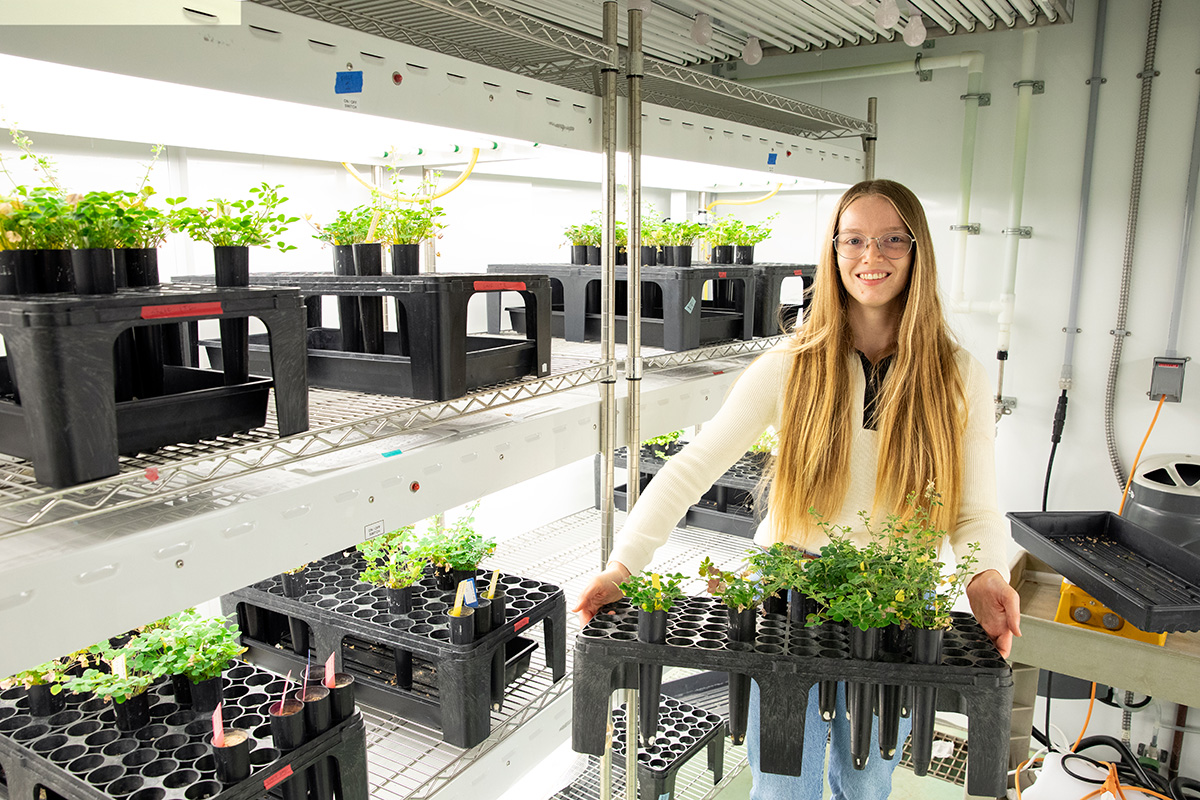Penn Arts & Sciences Launches Plant ARC
The Plant Adaptability and Resilience Center aims to enhance plant development and fortitude in the face of climate change.

Penn Arts & Sciences recently launched the Plant Adaptability and Resilience Center, or Plant ARC. The center, led by Doris Wagner, DiMaura Professor of Biology, aims to enhance plant development and fortitude in the face of climate change, which impacts food security, human health, and ecosystems through evermore extreme and unpredictable weather events like heatwaves, droughts, and floods.
Anchored in the Department of Biology, Plant ARC will collaborate broadly across departments and with schools and centers across the University, as well as with local stakeholders, and beyond.
“Penn is the ideal place for Plant ARC because of its commitment to climate change solutions across schools and disciplines,” Wagner says. “Plants sustain all life on Earth and are crucial for ecosystems and climate regulation. By safeguarding essential species interactions, understanding how climate change affects plant physiology and development, and developing climate-resistant crops, Plant ARC will devise scalable, research-driven solutions that boost food security and ecosystem resilience, from urban farms in Philadelphia to global agricultural systems.”

Doris Wagner, DiMaura Professor of Biology
It tackles what Aman Husbands, Mitchell J. Blutt and Margo Krody Blutt Presidential Assistant Professor of Biology and a Center faculty member calls the “central issue” of our time. “I am thrilled to be part of the new and exciting Plant ARC initiative, which aims to tackle this issue head-on,” he says. “It leverages the strengths of both Penn and the City of Philadelphia, which range from basic science to engineering to policy to community gardening. I am also excited about the impact that the center will have on my research.”
One key piece of infrastructure Plant ARC will bring in are phytotrons. “These sophisticated plant growth chambers allow the precise, simultaneous manipulation of numerous environmental parameters,” Husbands says.
“This is important because a core research direction of my lab is to understand how plants create difficult shapes—like flat leaves—in a highly reproducible (or robust) manner,” he adds. The ability to precisely modulate the environment will make identifying the underlying genetic causes of robustness much easier.” The end goal is precision improvement of plant traits for agriculture and ecosystems generally and specifically in the urban setting.
Plants sustain all life on Earth and are crucial for ecosystems and climate regulation. By safeguarding essential species interactions, understanding how climate change affects plant physiology and development, and developing climate-resistant crops, Plant ARC will devise scalable, research-driven solutions.
“Plant ARC is a tremendously exciting idea, allowing Penn researchers to further develop fundamental plant research and to harness the resulting advances in plant adaptability and resilience against the effects of climate change,” says Mark Trodden, Associate Dean for the Natural Sciences and Fay R. and Eugene L. Langberg Professor of Physics. “This Center represents an important pillar in our broad efforts in sustainability and climate in the School of Arts & Sciences.”
The Center is involved in multiple recent and upcoming events, including the Penn Science Café: Plants on a Warming Planet, which focused on the complexity of plant responses to climate change, and the 1.5* Minute Climate Lectures during Climate Week at Penn.




